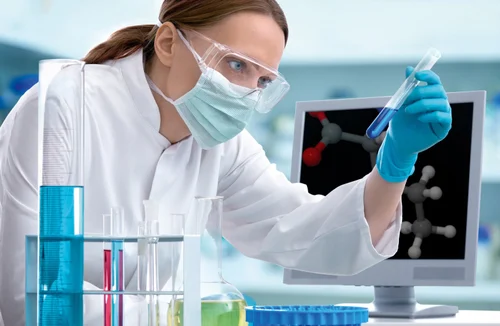Lab equipment plays a crucial role in quality control processes across various industries by providing accurate and reliable data to ensure products meet specified standards. Here are ways in which lab equipment contributes to quality control:
-
Precision and Accuracy:
- Lab equipment, such as analytical balances, spectrophotometers, and chromatographs, ensures precise measurements and accurate analysis of raw materials and finished products.
- Accurate measurements are essential for determining the composition, concentration, and quality attributes of substances.
-
Chemical Analysis:
- Instruments like mass spectrometers, gas chromatographs, and liquid chromatographs help in identifying and quantifying chemical components in a sample.
- This is crucial for verifying the composition of raw materials and ensuring the absence of impurities or contaminants.
-
Physical Property Measurement:
- Equipment like rheometers, viscometers, and texture analyzers help in assessing physical properties such as viscosity, hardness, and elasticity.
- These measurements are important for products like cosmetics, food, and pharmaceuticals, where specific physical attributes contribute to product quality.
-
Microbiological Analysis:
- Microscopes, incubators, and other microbiological equipment are used to detect and analyze microorganisms in products.
- This is vital in industries like pharmaceuticals, food, and cosmetics to ensure products are free from harmful bacteria, molds, and other pathogens.
-
Environmental Monitoring:
- Instruments for environmental monitoring, such as air and water quality analyzers, help in ensuring that manufacturing environments meet specified standards.
- This is critical in industries like pharmaceuticals and electronics manufacturing where environmental conditions can impact product quality.
-
Testing Mechanical Properties:
- Equipment like hardness testers, tensile testers, and impact testers assess the mechanical properties of materials.
- This is particularly important in industries like manufacturing and construction where the strength and durability of materials are critical to product performance.
-
Automation and Robotics:
- Automation in laboratories using robotic systems can enhance efficiency and reduce human errors in repetitive tasks, improving the reliability of results.
-
Data Logging and Analysis:
- Laboratory information management systems (LIMS) and data loggers help in recording and analyzing data throughout the testing process.
- This ensures traceability, consistency, and the ability to identify trends or deviations in quality.
-
Compliance and Documentation:
- Lab equipment contributes to the documentation required for compliance with industry regulations and standards.
- This documentation is essential for demonstrating adherence to quality control processes during audits.
In summary, lab equipment in kuwait facilitates the precise analysis of raw materials and finished products, helping industries maintain and improve the quality of their products, comply with regulations, and meet customer expectations.


No comments yet